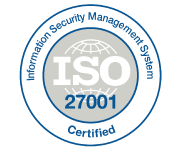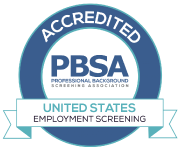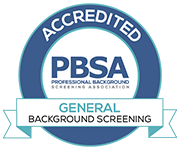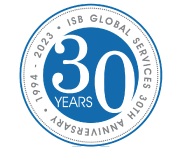See What's Trending In The Background Check Industry
Screening for Company Culture
Updated:
 Company culture is something that is hard to put your finger on. You want your employees to be happy coming to work, to be motivated, and to trust your decisions and their fellow employees in day-to-day functions. You want to hire the best people, but as we all know when we are interviewing, someone who may seem like the best fit may not actually be who they appear. An interviewee may be nervous in an interview but may actually have strong leadership skills once comfortable, or they may be overly confident in the interview but may be quite reserved once hired.
Company culture is something that is hard to put your finger on. You want your employees to be happy coming to work, to be motivated, and to trust your decisions and their fellow employees in day-to-day functions. You want to hire the best people, but as we all know when we are interviewing, someone who may seem like the best fit may not actually be who they appear. An interviewee may be nervous in an interview but may actually have strong leadership skills once comfortable, or they may be overly confident in the interview but may be quite reserved once hired.
Your employee mix is what makes up your company culture and whether or not your work environment is functional, enjoyable, or toxic. When hiring new employees, you would like to think that you can trust your gut on the type of employees you are hiring. You want them to be able to best benefit your company. But is that the only criteria you are using when hiring?
The training and onboarding of new employees often is a costly venture, and nobody wants to look like a fool if an employee ends up being a poor fit or even toxic to your work environment and culture. Therefore, the inevitable questions arise. “Is there any way to determine a person’s true personality and work habits? Can I mitigate the risk involved with bringing a new employee into my company?” There are the traditional methods, which many of us will be familiar with, such as checking an applicant’s references, but those can often be provided by biased parties. There are also recruiting firms that provide information on an applicant, but can you trust them? They often provide a good synopsis on the experience and overall accomplishments of an applicant, but again, you are taking the word of someone else as truth .
 If used regularly with positions being clearly defined, an organization can carefully screen for employees who they know will fit with their current employee pool and will be contributors rather than detractors from the company’s culture. Studies have shown that this approach can drastically reduce turnover and improve production. Coupled with an employer who truly cares for the company’s culture, this may be the key to acquiring the perfect employee for whatever position needs to be filled.
If used regularly with positions being clearly defined, an organization can carefully screen for employees who they know will fit with their current employee pool and will be contributors rather than detractors from the company’s culture. Studies have shown that this approach can drastically reduce turnover and improve production. Coupled with an employer who truly cares for the company’s culture, this may be the key to acquiring the perfect employee for whatever position needs to be filled.
ISB Global Services Offerings
In the evolving world of business, a strong company culture is paramount to success. ISB Global Services stands at the forefront of ensuring that cultural fit, offering comprehensive background checks tailored to align potential employees with a company's unique ethos and values. With our expertise, businesses can foster a cohesive environment where every team member not only meets the required skillset but resonates with the company's core beliefs. Trust ISB Global Services to be your partner in building a harmonious, culture-driven workforce.




